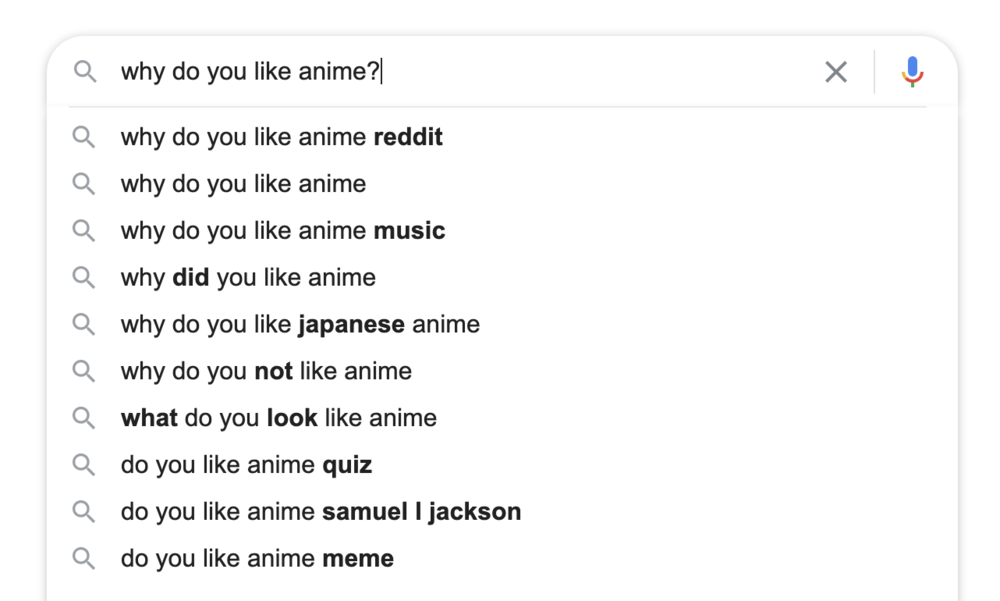

Write better website copy by connecting with your prospects


How do you measure your site’s “success”?
If you’ve had a website for any length of time, you know to jump into Google Analytics and track how much traffic you’re getting and where your visitors are coming from.
But conversion is the other crucial half of that coin, the yin to your yang, the feather in your proverbial cap. Because while it’s true that traffic is one excellent quantifiable measurement of success, it doesn’t tell the whole story.
If you’re driving the wrong kinds of traffic to your site—for example, on keywords that are popular but not correctly targeted to the prospects you want to attract, or from a Facebook ad with messages that don’t match the promises on your landing page—you’ll get traffic, sure, but those visitors will quickly say No, ma’am to your offer and be on their merry way.
To truly capture the attention of your prospects in a way that compels them to convert, you need the right combination of keywords AND messaging that’s carefully selected to meet your prospects where they’re at.
The TL;DR?
-
If you want your website to work harder for you, you need to be laser focused on your messaging.
-
Writing targeted website copy that speaks directly to your site visitors builds trust and connection and encourages your prospects to buy or take additional action.
-
Using the words and phrases your ideal customer uses, you’re demonstrating that you understand the problems and pains they need help with and are therefore in a position to help.
Speak your prospect’s love language
To capture and keep the attention of your site visitors, you need to form a relationship with them, one based on trust and understanding.
But more importantly, your prospects need to see themselves represented in your messaging. They should, on some primal lizard-brain level, feel as though your offer will either improve or fulfill a deep longing or lacking in their life.
I’m gonna drop this quote from the great Mad Men-era ad writer Victor Schwab here, mkay? Let’s see what he’s got to say:
“Show people—with words, or pictures, or both—what they can save, gain, or accomplish with your product. . . how it will increase this: their mental, physical, financial, social, emotional, or spiritual stimulation, satisfaction, self-respect, well-being, or security. . . or decrease this: their fear of poverty, illness or accident, discomfort, boredom, offense to others, and the loss of business, personal, or social prestige or advancement.”
So. . .how do you do that?
-
You research the heck out of your ideal customers
-
You borrow their exact words and phrases to use in your own messaging
-
You study where your competitors do this well (and where they stink)
-
You implement these borrowed phrases and key messaging strategically throughout your site based on customer journey and product awareness
5 places to find the right message
The first step in learning and—I’ll say it—obsessing over your ideal prospects is to figure out where they hang out and then flexing your ear muscles with some intentional listening. The more you learn, the more you’ll start to see patterns in their needs, desires, and common interests. . . those patterns are 100% pure gold for your website copy.
Here are 5 places that I like to go when I’m starting the research process:
Google search
I’m listing this one first because I think it’s the best place to start when you’re not totally sure where your audience is hanging out. Google search can help you hone in on the right keywords and give you clues about what to search for. This is especially useful if you’re expanding into a new market, re-branding, or just launching your products or services.
I recently worked with a client who sells anime. . .stuff. . . like figures, art, and lottery tickets that are all the rage in Japan. Besides a very nerdy ex I briefly dated in college who collected Akira figures, I had zero clue what was motivating this crowd to buy.
Google search helped in two ways:
Google autocomplete
These phrases pop up when you begin a search and are hugely helpful in finding the right words and idioms to use. These two searches immediately showed me a key pain point of this audience around finding high-quality pieces online and told me to check out Reddit feeds.
And what the heck is up with that Samual L. Jackson search?





Google search operators
Search operators allow you to narrow your search in specific ways, like by site name or specific keywords in headers and body text.
These little gems will help you quickly target the right places to look. Here are some to try:
-
site: Search by TLD (top-level domain) like .gov, .edu, or .org. Are you looking for non-profits? .org. Do you want to find research and data stats, stat? .gov. You can also put in a website and search for content on that domain, like site:www.reddit.com “why do you collect anime?”
-
intitle: Search for keyword phrases in headers. intitle:“anime fans”
-
intext: The least targeted but still helpful, especially when combined with another operator, intext: will scan for phrases on any page. site:www.reddit.com intext:anime
There are loads more to choose from. Find the full list plus tips and details here.
Competitor reviews
A great way to learn what to say and what NOT to say is by mining your competitor’s customer reviews.
Here’s an example. I recently wrote an email sequence for a high-end slim credit card holder for men. As I was looking through Amazon reviews from their top competitors I noticed a pattern: a lot of reviewers were complaining about something called “pocket bulge” from other wallets, even those that claimed to be a slim wallet alternative.
These men wanted a place to house their essential cards and still be able to wear skinny jeans comfortably, and the competition wasn’t meeting this need.
So this became the core messaging in my sale sequence. The subject line? “The cure for pocket bulge.” We matched this language in the product page as well: “Designed for convenience, this slim credit card holder seamlessly holds up to 10 cards and fits into any pocket.”



It wouldn’t have occurred to me to lead with messaging around pocket bulge, but by identifying this gap in the market, I was able to help my client differentiate their product and meaningfully connect with the customers seeking this solution.
There’s something so refreshing about unrefined, unfiltered commentary, and Reddit has it in spades. Depending on what you sell, Reddit is an excellent way to figure out what your ideal prospects need and what’s motivating them. Jump into sub-reddits and scan the questions about your topic. Then, read through the answers, and copy/paste interesting phrases into a separate document so you can review it later.
Tag your phrases by theme and try to find patterns in these unfiltered comments. This will show you what’s most important to focus on and what’s an outlier AKA just some bored guy ranting from his computer on a Friday night.
Quora
I find Quora particularly helpful for technology, SaaS products, and service-based businesses. People articulate solutions so well here, and compared to the no-holds-barred Reddit, Quora answers tend to be a bit more curated and well-articulated. This is good for later-stage research, when you need a tighter way to frame a message. Chances are, someone has already done it for you on Quora. It’s also another great place to learn more about your competitors and where they’re missing the mark.
Online forums
Another excellent source of uncensored feedback, online forums have the added benefit of being insular, closed communities. That means you have access to the opinions, feelings, and preferences of an otherwise inaccessible group. Listen carefully to what people are expressing in forums and look for what they’re NOT saying: What are the frustrations, joys, and dreams that are just under the surface of the words? These are the same drivers you want to use to attract customers with your website copy.
Listen well and don’t be creepy
We have a responsibility to eavesdrop ethically and respectfully. So don’t be a creeper! Use your knowledge and research to write messages that build trust, connect, and deepen relationships. Do these things well and I’m confident your website copy will improve conversions and bring you better traffic.
If you’d like some help from someone who’s done this a whole bunch, reach out. I’d love to help you improve your website copy.
Boost your website IQ
Get bi-weekly copywriting tips & SEO how-to's that power your website


get in touch
© 2022 HD Copywriting LLC | Website Copywriting | Terms of Service | Privacy Policy



Website Design by Tsaroo
Work With Me
About
Blog
Portfolio




TLC Your Website Copywriting
GRAB THE FREE GUIDE
Client Portal
